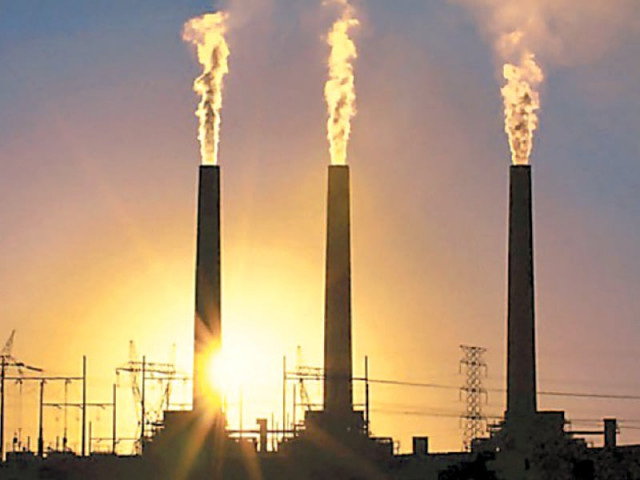Pakistan’s new energy policy
The absurd idea of shutting down commercial areas at night to conserve electricity appears to be making a comeback.

The absurd idea of shutting down commercial areas at night to conserve electricity appears to be making a comeback. PHOTO: FILE
In announcing the national energy policy, Water and Power Minister Khawaja Asif was remarkably candid about the need for a rise in power tariffs for almost everyone in the country. And, by stating explicitly that even households would see their electricity bills go up, he laid to rest what had been some disturbing initial reports that the burden of higher energy costs would be shouldered disproportionately by the industrial sector.
The energy plan laid out by the minister and presented to the Council of Common Interests contains quite a few good ideas that we support. It focuses the government’s efforts on reducing the weighted average cost of producing electricity by shifting to cheaper fuels and cracking down more forcefully on theft. It proposes charging higher rates from industrial and upper-middle class household consumers, who have heavy electricity use and for whom the higher tariff, coupled with a guarantee of uninterrupted supply, would still be cheaper than running back-up generators. And it proposes privatisation of state-owned energy companies to reduce the influence of corrupt labour unions.
These are all sensible strategies. We are also glad to see that the Nawaz Administration took some time in crafting its strategy, rather than rushing to meet an artificial deadline. And it is also commendable that the prime minister seems to be resisting what must be enormous pressure from several powerful lobbies that are opposed to his policy of prioritising the power sector for natural gas supply.
The policy strikes a reasonably fair balance between the need to eliminate subsidies while also ensuring that electricity remains affordable for the poorest of our fellow citizens. Retaining the subsidy for households that consume less than 200 kilowatt-hours of power every month seems like a good approach. If the government is able to restrict its subsidy to just this group, its overall subsidy bill is likely to go down by over 80 per cent, according to an analysis conducted by the World Bank.
The policy, however, is not without flaws. The absurd idea of shutting down commercial areas at night to conserve electricity appears to be making a comeback. This is an absolutely nonsensical suggestion that is a favourite of the federal bureaucracy. Such a proposal comes from the absurd notion that the purpose of the energy policy is to reduce power cuts, a remarkably short-sighted and poorly thought-out objective. No, the real purpose of the national energy policy should be to eliminate the gap between demand and supply and to ensure an adequate supply of electricity for economic activity in the country. How does it make any sense to have a reduction in economic activity as part of the energy policy? As usual, the bureaucrats have got it backwards and it is disappointing to see that the minister appears to be going along with their absurd schemes.
There are, however, important areas that the policy ignores completely. For example, while there is a commendable emphasis on using more technological tools to isolate areas of theft and crack down on pilferers, there appears to be no effort to improve the government’s analytic abilities in the realm of energy pricing. The decision to move to coal, for instance, is based entirely on today’s relative prices of coal and oil, not how that relationship might change over the next few decades.
Yet, for all its shortcomings, the manner in which the energy policy has been handled politically by the administration is an exercise in statesmanship on the part of the prime minister. It is rare to see such leadership on matters of such critical importance to the economy. We hope the implementation of this grand vision is just as well-managed.
Published in The Express Tribune, August 7th, 2013.
Like Opinion & Editorial on Facebook, follow @ETOpEd on Twitter to receive all updates on all our daily pieces.













COMMENTS
Comments are moderated and generally will be posted if they are on-topic and not abusive.
For more information, please see our Comments FAQ